SUMO Proteomics Data Analysis Service
SUMOylation is an important reversible post-translational modification in which small ubiquitin-like modifier (SUMO) proteins form covalent bonds with lysine residues on target proteins, thereby regulating protein stability, spatial distribution, complex formation, and functional state. It plays critical roles in DNA repair, transcriptional regulation, cell cycle progression, stress response, and tumorigenesis. Abnormal SUMOylation is associated with various diseases, including cancer, neurodegenerative disorders, and inflammatory responses.
However, the analysis of SUMO proteomics data is highly challenging. Datasets generated from mass spectrometry experiments are often large, noisy, and contain weak modification signals. Accurate site localization and biological interpretation require high-precision algorithms and multi-level information integration. To address these challenges, MtoZ Biolabs has established a systematic SUMO proteomics data analysis service that combines standardized data processing workflows with multi-dimensional bioinformatics analysis to provide professional SUMO modification data interpretation solutions for research institutions and pharmaceutical companies. Our service helps clients extract meaningful information from complex mass spectrometry data, identify SUMO modification sites, quantify dynamic changes, and reveal potential regulatory networks, thereby accelerating mechanistic research and drug development.
Services at MtoZ Biolabs
To address the complexity of SUMO data analysis, MtoZ Biolabs provides a complete, high-quality, and reproducible SUMO proteomics data analysis service to ensure accuracy and biological interpretability of results.
● SUMO Modification Site Identification and Localization
Using software such as MaxQuant and Proteome Discoverer combined with algorithms for recognizing SUMO remnant peptides (such as QTGG), we perform high-confidence identification and site localization of SUMOylated peptides, with scoring algorithms to evaluate localization reliability.
● Quantitative Analysis of Modification Levels
Supporting multiple quantitative modes including Label-Free, TMT, iTRAQ, and DIA, we precisely measure differences in SUMOylated protein abundance between experimental conditions or treatment groups, applying normalization and error correction to ensure stability and reproducibility of results.
● SUMOylation Pattern Recognition and Feature Analysis
Through motif discovery and modification pattern analysis, we identify potential SUMO recognition motifs and regulatory patterns, helping researchers infer substrate specificity and regulatory characteristics of E3 SUMO ligases.
● Functional Annotation and Pathway Analysis
Integrating databases such as GO, KEGG, and Reactome, we annotate SUMOylated proteins and analyze their roles in signal transduction, DNA repair, cell cycle regulation, and metabolic pathways, providing biological explanations for research findings.
● Protein Interaction and Network Construction
Using databases such as STRING and BioGRID and the Cytoscape platform, we construct protein interaction networks to identify key nodes, signaling modules, and potential regulatory targets related to SUMOylation, revealing system-level regulatory mechanisms.
● Customized Data Analysis and Report Generation
For different project needs such as disease mechanism studies, drug intervention evaluation, or multi-omics integration, we provide personalized data analysis and visualization solutions, delivering comprehensive analytical reports and publication-ready figures.
Analysis Workflow
The SUMO proteomics data analysis service at MtoZ Biolabs follows a rigorous, standardized workflow to ensure data quality and reproducibility of results.
1. Data Reception and Quality Control: Receive raw mass spectrometry files (RAW, mzML, etc.) and evaluate signal-to-noise ratio, mass drift, and peak identification quality.
2. Peptide Identification and Modification Recognition: Identify SUMO-modified peptides and localize modification sites through database searching and fragment ion matching.
3. Quantitative Analysis and Data Normalization: Perform quantitative calculations based on experimental design, followed by error correction and normalization.
4. Functional Annotation and Pathway Enrichment: Integrate GO, KEGG, and PPI databases for functional-level interpretation.
5. Visualization and Result Summarization: Generate multi-dimensional visualizations such as heatmaps, volcano plots, and network diagrams, producing structured reports for interpretation and publication.
Service Advantages
1. Multi Analytical Platform
MtoZ Biolabs supports various mass spectrometry platforms such as Orbitrap, timsTOF, and TripleTOF, as well as multiple data formats including RAW, mzML, and txt. We can directly process data generated from different laboratories. Parameters and algorithms are optimized based on sample type and experimental design to ensure the accuracy and consistency of analytical results.
2. High-Confidence Identification
SUMO modification signals are often weak and complex. MtoZ Biolabs uses a specific recognition strategy based on SUMO signature residues (such as QTGG) combined with multi-engine database searches and manual verification steps to significantly enhance the confidence and specificity of site identification, ensuring reliable and traceable results.
3. Accurate and Stable Quantification
Whether using Label-Free, TMT, iTRAQ, or DIA, we employ standardized quantitative and statistical workflows. Rigorous normalization and hypothesis testing ensure that differential results are statistically significant and biologically meaningful, providing a solid data foundation for mechanistic studies.
4. Integrated Bioinformatics Analysis
Our SUMO proteomics data analysis service provides not only basic data analysis but also integrates functional annotation, pathway enrichment, and protein interaction network analysis. This multi-layered interpretation helps clients understand SUMOylation mechanisms at the system level and extract biologically meaningful insights from data.
5. Expert Analytical Team
Our bioinformatics specialists and mass spectrometry analysts have extensive experience in SUMO proteomics research. We strictly follow analytical standards such as FDR control, score filtering, and reproducibility assessment, implementing quality control at every step to ensure that results are scientific, standardized, and publication-ready.
Applications
✔️ Stress and Signaling Pathway Research: Analyze the dynamic regulation of SUMOylation during heat shock, oxidative stress, and DNA repair responses.
✔️ Cancer and Metabolic Disease Mechanisms: Reveal how SUMOylation affects transcriptional regulation, metabolic adaptation, and drug response in tumor cells.
✔️ Neurodegenerative Disease and Aging Research: Study the role of SUMOylation in protein aggregation, synaptic function, and aging processes.
✔️ Drug Target Discovery and Mechanism Validation: Evaluate the impact of drug interventions on the SUMOylation network and identify potential targets.
✔️ Multi-Omics Integration Analysis: Integrate SUMO proteomics with phosphorylation, ubiquitination, and transcriptomics data to uncover global regulatory mechanisms.
Deliverables
1. Comprehensive data analysis report
2. List of SUMOylated proteins and modification sites
3. Quantitative and differential analysis results
4. GO and KEGG enrichment and functional annotation results
5. Protein interaction network and signaling pathway diagrams
6. Raw mass spectrometry data and analysis parameter documentation
Contact us to obtain a customized SUMO Proteomics Data Analysis Service and transform complex data into powerful insights that drive scientific discovery.








